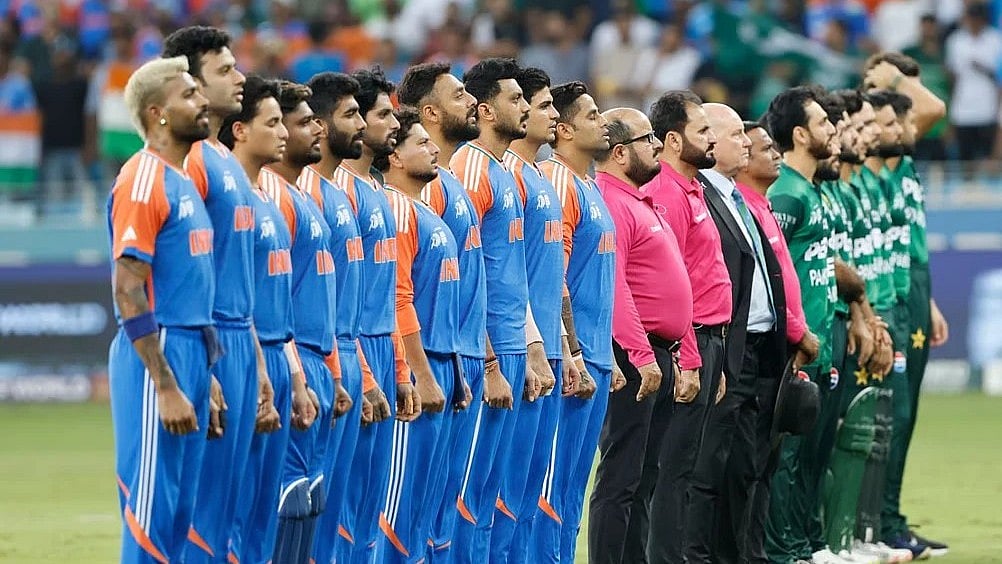Rahul Gandhi’s Iftar party invitation to Pranab Mukherjee indicates that far from being an outcast in the Congress ranks, the former president of India is as much in demand as ever. His bargaining value may even have gone up. However, it may be an over-simplification to view Mr Mukherjee’s hob-nobbing with the Rashtriya Swayamsevak Sangh only as a political gambit. The human aspect should not be ignored, especially with a sentimental Bengali who fondly remembers Indira Gandhi’s affection for him.
When a veteran European ambassador, whose last posting was India, died suddenly within six months of leaving New Delhi, his colleagues back home said he had died of retirement. That memory came back to me when I saw the “R Venkataraman, Former President of India” name plate on a Lutyens bungalow. If the head of state’s name wasn’t known by the time he stepped down, it probably didn’t deserve to be known. What the advertising really conveyed was that the former president resented being “former”. Not that he yearned to be “president for life” like Haiti’s Francois Duvalier or “Papa Doc”. But he did miss the pomp and ceremony of Rashtrapati Bhavan.
That is perhaps a charitable explanation for why Mr Mukherjee accepted the RSS’s invitation to visit Nagpur and address its swayamsevaks at the end of their three-year training. It can be lonesome for a man who has been in constant demand suddenly to feel no one needs him any more. Moreover, the speculation is that far from satisfying his highest ambition, the presidentship left Mr Mukherjee feeling he had somehow been done out of the job he always believed should rightly have been his. With the Bharatiya Janata Party well disposed towards him, Mr Mukherjee’s joke that his initials “PM” stood for “Prime Minister” might yet come true. All this must be well known to those two shrewd strategists, Amit Shah and Narendra Modi, who probably advised Mohan Bhagwat to invite Mr Mukherjee to Nagpur after making sure of his acceptance.
The visit let the cat among the pigeons of family, Congress colleagues and media commentators. Maintaining a dignified silence, Mr Mukherjee did not bother to explain his decision. But speculation about it will continue because no one accepts that his resignation from the Congress party to become president was anything but a formality.
The visit to Nagpur can be viewed from several angles. The obvious interpretation if a lesser man had been involved would have been that Mr Mukherjee is considering changing his political allegiance. Not only is this unthinkable, it would be an insult to the former First Citizen even to discuss it. At the same time, it has to be conceded that some of the things he said at Nagpur and some of the things he didn’t say combine to suggest an unsuspected dimension to his thinking. The act of commission that evoked the strongest comment was his flattering eulogy in the visitor’s book at the memorial of the RSS’s founder, K B Hedgewar. The act of omission that also drew sharp strictures was the absence of any mention of Mahatma Gandhi’s murder and the RSS’s suspected role.
Neither suggests conventional Congress thinking. But then, Congressmen have traditionally represented the entire gamut of political opinions, from near-Communist leftism to the near fascist Hindu right. In the early years of its existence, the Indian National Congress included both loyal servants of the British Raj and militant nationalists who claimed swaraj as their birthright. Congress was rightly called a movement and not a party. Some Congressmen have even combined contrasts that others would regard as clashing in their own persons, faithfully performing devotional pujas in the morning and preaching revolution in the evening. Or washing down their “Jai Hind!” with whiskey and soda. Given this eclecticism, even a faithful Congressman might retain some respect or even affection for the notion of a Hindu rashtra.
Some have even argued that socialism and secularism, which are regarded today as essential props of the Congress ideology, did not necessarily reflect that views of veterans like Bhogaraju Pattabhi Sitaramayya, Rajendra Prasad or Chakravarti Rajagopalachari. They represented the personal creed Jawaharlal Nehru was able to force Congress to accept as core national beliefs because of his towering personality and ability to communicate in English, especially with the ruling race. Even his daughter, whose ideology a British journalist once described as “slightly left of self-interest”, may not have subscribed fully to his agnosticism, faith in science and reason, and Fabianism.
There’s always a personal angle to believing. Indira Gandhi’s attachment to people like Anandamayee Ma or Dhiren Brahmachari is said to have been not unconnected with her relations with her aunts, especially the highly Westernised Vijayalakshmi Pandit, and their perceived treatment of the more orthodox mother to whom she was very attached. Mr Mukherjee’s political baptism under Indira Gandhi could not have included the intellectual socialism and secularism that inspired her father. Her dominant impulse was survival, and that ruled out ideological consistency or constancy. Having been weaned in that school, Mr Mukherjee would see no harm in strategic adjustment and accommodation.
A personal factor that may have determined a step that many Congressmen regard as heretical is his relationship with Congress party’s present managers. His problems with Rajiv Gandhi, from whom both Sonia and Rahul derive legitimacy, have already been chronicled many times. He has written himself of the expectation that she would invite him to take up the prime ministership when, instead, she chose Manmohan Singh. The Congress, in its present incarnation, may not be his favourite organisation. The appeal, if any, of Mr Rahul Gandhi’s offensive against the RSS ideology must be weighed in the balance against other pulls. After all, he did leave the Congress once and stayed away for about seven years.
If it’s right that Mr Modi and Mr Shah instigated the Nagpur invitation, they may have sought to ensure that the RSS enjoys some respectability in the public view, and decided this could best be achieved if the former president were seen to fraternise with the pracharaks, swayamsevaks and sarsanghchalaks who are the organisation’s most visible public face. Being astute tacticians, the prime minister and BJP president may also have taken note of recent events in Karnataka and the Opposition’s determined bid to present a united front to voters. If, like many others, they too fear (although they will never admit it publicly) that the BJP may not get an overwhelming majority in 2019 and that a coalition government is inevitable, Mr Mukherjee, with whom the BJP has worked amicably for the last several years, might seem the best insurance against an uncertain future. He may not have been that if, like Venkataraman, he too hadn’t felt neglected.
Sunanda K Datta-Ray is the author of several books and a regular media columnist.




